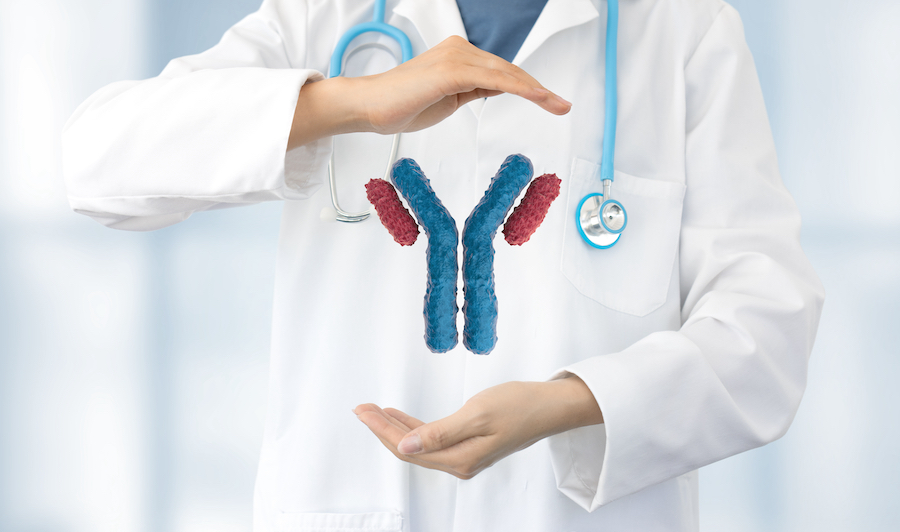If you feel like you’re a square peg and AA is a round hole, don’t give up, say experts advocating for range of treatment approaches
By William Wagner
November 5, 2020Not all people with substance abuse problems are the same. In turn, neither are all treatment approaches.
Since its founding in 1935, Alcoholics Anonymous (AA), with its 12 steps, has become the dominant recovery model. AA’s message of spiritual awakening has resonated with many people in the recovery community. For some, however, it’s been more of a hindrance than a help.
“There are a lot of people who survive the 12-step program and are happy with it and do quite well,” says Robert Stump, a recovering alcoholic and the executive director of the treatment organization LifeRing Secular Recovery. “But there are so many other people who are unhappy. They’re sad. They know they have to keep sober, but they don’t really like this program. It’s based on Judeo-Christian [principles] and the Garden of Eden and how evil a person is; people have to find the light in order to be good. I ran away from the 12-step program because it was horrendous in terms of its philosophy compared with my worldview. I had to find an alternative.”
“There are a lot of people who survive the 12-step program and are happy with it and do quite well. But there are so many other people who are unhappy.”—Robert Stump, executive director of LifeRing Secular Recovery
Psychologist Stanton Peele has long been outspoken about AA. In fact, one of the 12 books he has authored is titled Resisting 12-Step Coercion: How to Fight Forced Participation in AA, NA, or 12-Step Treatment (2000). During a 2020 interview with TreatmentMagazine.com, Peele said, “If you go to an AA meeting, you become completely cemented there if your goal is to never, ever touch alcohol and avoid all circumstances around that. There are a lot of negatives in that. There are psychological negatives, like feeling you’re powerless and you have to turn yourself over to a higher power and also to the group.”
Peele and Stump aren’t simply howling at the moon. A 2018 study in the Journal of Substance Abuse Treatment found that organizations such as LifeRing, SMART Recovery and Women for Sobriety can be every bit as beneficial as 12-step groups. An earlier study titled “Alcoholics Anonymous Effectiveness: Faith Meets Science,” published in 2009 in the Journal of Addictive Disorders, raised questions about the success rates of AA.
The point is, it’s not AA or bust. If you feel like you’re a square peg and AA is a round hole, don’t give up. There are other options that can help you stay clean and sober, including:
SMART Recovery
SMART Recovery, a nonprofit founded in 1994, is among the best-known secular-oriented alternatives to AA, with an approach that is steeped in science. Rather than spurring an individual to surrender to a higher power, the organization encourages self-empowerment. According to SMART Recovery, its approach centers on a “4-Point Program: (1) Building and maintaining the motivation to change. (2) Coping with urges to use. (3) Managing thoughts feelings, and behaviors in an effective way without addictive behaviors. (4) Living a balanced, positive, and healthy life.”
In addition to offering more than 3,500 meetings per week in locales throughout the United States (prior to the COVID-19 pandemic), SMART Recovery has scores of online meetings and other digital resources. The meetings are facilitated by individuals who have been trained to pass on the SMART Recovery tools for changing destructive behavior.
LifeRing Secular Recovery
Like SMART Recovery, LifeRing has a secular bent and coast-to-coast meetings that are complemented by online resources. LifeRing, established in 1997, attempts to tailor its hopeful message to the specific needs of each individual. In other words, it meets people where they are.
“You have the option to say, ‘I am good; I am wholesome. There’s a reason for me to live,’” Stump says of the nonprofit. “Even though you use a drug and have destroyed relationships and injured people, it’s not your fault. You weren’t born evil. You have an issue, and you’re going to come out better in the end.”
It’s not AA or bust. If you feel like you’re a square peg and AA is a round hole, don’t give up. There are other options that can help you stay clean and sober.”
Women for Sobriety (WFS)
As indicated by its name, Women for Sobriety caters to women. And there’s a good reason for that. “When you quit drinking and/or using, you need to change the way you think,” says Amy Perkins, a WFS moderator and volunteer in Gaithersburg, Md. “Most women have a very negative mindset and low self-esteem, which is magnified after they quit drinking and/or using. WFS helps women to develop coping skills that focus on empowerment and increased self-esteem. Most women are drawn to a single-gender environment, which can be more comfortable and nurturing.”
The nonprofit was started in the mid-1970s by Dr. Jean Kirkpatrick, a recovering alcoholic whose needs weren’t being met by AA. At the core of WFS is its New Life Program, which is designed to facilitate abstinence from alcohol and/or drugs through a journey of personal growth. In addition to meetings throughout the USA and Canada that follow a prescribed format, WFS provides online and phone support.
Refuge Recovery
Refuge Recovery grew out of Noah Levine’s 2014 bestselling book Refuge Recovery: A Buddhist Path to Recovering from Addiction. The nonprofit is built on Buddhist principles of mindfulness, such as the notion that all individuals possess the inner strength to free themselves from what ails them. It has a worldwide network of recovery communities.
“There are millions of people using Buddhism and calling it mindfulness,” Levine says. “When [the book] Refuge Recovery came out, there was already a mindfulness movement going on. Our program grew to 800 meetings.”
Recovery Dharma
As with Refuge Recovery, Recovery Dharma takes its cue from Buddhist teachings. It calls itself “a peer-led, grassroots, democratically structured organization. Our mission is to support individuals on their path of recovery from addiction using Buddhist practices and principles.” Groups are located around the globe, and they are empowered to follow the path that best applies to their specific circumstances.
Other alternatives to AA treatment include:
• Harm Reduction Therapy Center
• Moderation Management
• Rational Recovery
• Secular Organizations for Sobriety (SOS)
• The Phoenix
Learn more about more treatment options on TreatmentMagazine.com.













